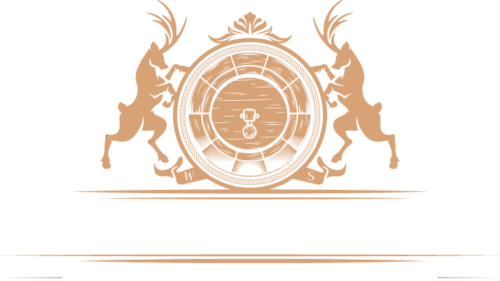FAQ's
Common questions answers about Whisky casks investing
What happens if my Whisky Solutions Breaks?
If your Whisky Solutions breaks, you’re covered under your insurance policy’s ‘accidental damage’ portion for the entire worth of your cask at the time of the claim. AVIVA re-values the casks every year to give you the most up to date valuation so that any growth that you may have made is never lost.
What kind of insurance does my Whisky Solutions have?
Fire, theft, and unintentional damage are all covered in full for your cask. Whisky Solutions will cover any excess through the insurer(AVIVA), so in the unusual case of a claim, you’ll get the entire market value of the cask at the time of the claim.
What happens if Whisky Solutions is bought out or goes bankrupt?
In either case, the main conclusion is that you own specific individually numbered whisky casks kept under bond at HMRC-regulated warehouses and can prove it. The casks are yours and not part of Whisky Solutions’ inventory. They are not for sale. Your barrel will not be auctioned to satisfy receivers or creditors if Whisky Solutions goes bankrupt. The cask is yours to keep.
Do you have any assurances?
Cask whisky purchases do not come with any assurances. Since there are so many elements that influence markets, any promise would be misleading. Historically, buying and storing whisky barrels for the medium to long term has been profitable, but previous performance is no guarantee of future results. Whisky Solutions works on the simple premise that if you buy whisky barrels and keep them for a long time, the whisky you buy will be older, in lower supply, and hence more desirable than it was when you initially bought it.
What do I do about Scams?
Scams are unfortunately common in any industry where success is common. Whisky Solutions has been in business for a long time and advises any clients interested in purchasing cask whisky to do as much research as possible. In general, potential clients should obtain independent guidance and conduct thorough and accurate background checks when deciding who to work with. The FCA does not control the sale of cask whisky, hence purchases are not covered by the FSCS(Financial Services Compensation Scheme). HMRC, on the other hand, regulates the purchase of cask whisky. In simple terms, clients should avoid organisations that advertise astronomically high returns or make any claims of “guaranteed profits,” as well as firms that are not listed on the WOWGR trading platform.
What happens if Scotland gains Independence?
Since the 1st of May 1707, Scotland has been a constituent country of the United Kingdom. On September 18, 2014, the people of Scotland voted against independence. Given that whisky accounts for 70% of Scottish food and drink exports, the general view is that post-independence, they will be more eager than ever to strike trade arrangements anywhere they can, which will undoubtedly include the United Kingdom. Britain also has a unique connection with the United States, which is by far the world’s largest importer of Scotch.Since the 1st of May 1707, Scotland has been a constituent country of the United Kingdom. On September 18, 2014, the people of Scotland voted against independence. Given that whisky accounts for 70% of Scottish food and drink exports, the general view is that post-independence, they will be more eager than ever to strike trade arrangements anywhere they can, which will undoubtedly include the United Kingdom. Britain also has a unique connection with the United States, which is by far the world’s largest importer of Scotch.
Is Cask Whisky Regulated?
Cask Whisky is not regulated. HMRC is in charge of controlling and regulating cask whisky. HMRC considers cask whisky to be a “wasting asset,” and it is not regulated by the Financial Conduct Authority (FCA), which oversees “regulated” financial assets. Before making any transaction, Whisky Solutions always advises that you seek independent legal and financial advice.
What is the difference between OLA and RLA?
OLA is an abbreviation for ‘original litres of alcohol,’ and RLA is an abbreviation for ‘regauged litres of alcohol’ OLA denotes the number of litres of pure alcohol initially placed in the cask, whereas RLA denotes the number of litres of pure alcohol left in the cask following a regauge, which checks the health, contents, and value of your cask.
Is there a Purchase Price minimum?
No. The smallest investment is the price of the lowest-value cask at the moment the enquiry is made, dependent on the stock owned at the time. This rate is subject to vary on a daily basis, but there is no minimum.
So, what happens if I pass away?
Your legal ownership of your barrel is confirmed by the certificate of title and supporting papers you get from Whisky Solutions (s).
Your whisky casks will be added to your overall estate and assessed by HMRC if you pass away. If you’ve written a will, you’ll be able to specify who your estate’s beneficiaries will be and how much they’ll receive. In this case, Whisky Solutions recommends that you seek expert, independent financial advice.
How can I know the Whisky Solutions was bought and is real?
Once the Whisky Solutions is delivered into the bonded warehouse, we can email you a certificate of delivery and, if feasible, a photograph of your cask resting in the bonded warehouse (warehouse dependent). Following that, Whisky Solutions issues a certificate of ownership (wet signed and stamped by the founding director).
Is there a set amount that must be purchased or invested?
There is no requirement to make a minimum purchase or investment. However, it will depend on cask pricing and which cask you decided to go for. Many first time investors will typically start of somewhere between £10,000-£20,000.
What is the recommended holding time for my Whisky Solutions?
The length of time you retain your Whisky Solutions is completely up to you. We’ll go over everything in detail with you before you buy so that we can tailor everything to your specific needs, but we usually recommend a minimum of 5-10 years. However, the longer you store the whisky, the better it becomes, the rarer it becomes, and the potential earnings rise.
What is a Bonded Warehouse?
A bonded warehouse is an HMRC-controlled warehouse where items are stored and held duty and VAT-free. Bonded warehouses have been granted an official WOWGR licence by HMRC (Warehousekeepers and Owners of Warehoused Goods Regulations). This permits a company to store and move products from one bonded warehouse to another while the payment of duty is deferred.
What is Duty Suspension, and how does it work?
Your Whisky Solutions is kept and transferred under duty suspension when it is stored or transported between bonded warehouses. This means you won’t have to pay duty on your barrel, which is HMRC’s tax on alcohol (currently £28.74 per litre of pure alcohol), until the cask is withdrawn from bond.
What exactly are Bulk Litres?
Bulk litres are the total litres of liquid in a barrel, including pure alcohol and liquid. A cask filled with 200 bulk litres at 64% ABV contains 128 litres of pure alcohol (64 percent of 200).
What exactly is the Angel's Share?
“The angels’ share” is a phrase you’ll hear a lot at whisky distilleries. A little amount of whisky evaporates through the wood and into the atmosphere as whisky gently matures in its Whisky Solutions. This can be as much as 2% every year, but it is rarely that high.
Why is it Tax-Free?
Whisky Solutions are classified as a “wasting asset,” which means they are exempt from capital gains tax. Wooden whisky casks are porous by nature, thus only a small quantity of whisky evaporates each year and is absorbed by the wood, usually less than 2% (the angel’s share). A wasted asset is one that has a foreseeable life of 50 years or fewer, and due to evaporation, your cask’s life expectancy is unlikely to be greater than 50 years.
What is ABV and what does it mean?
The usual measure of how much alcohol is contained in any given volume is ABV, which stands for ‘alcohol by volume.’
START INVESTING TODAY
Download your free whisky investment guide


